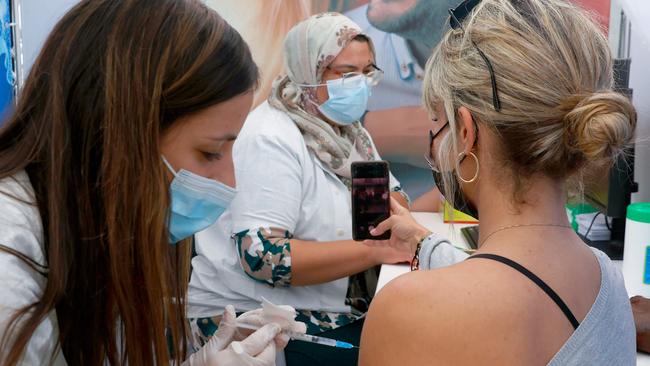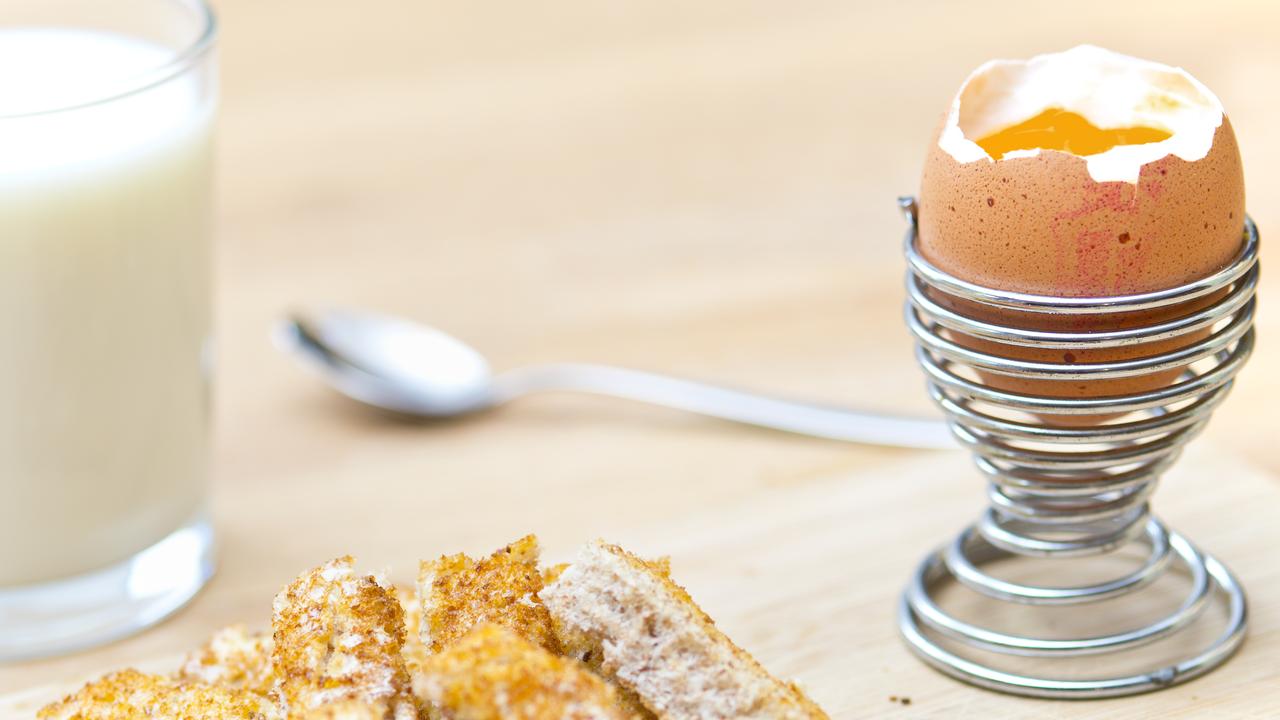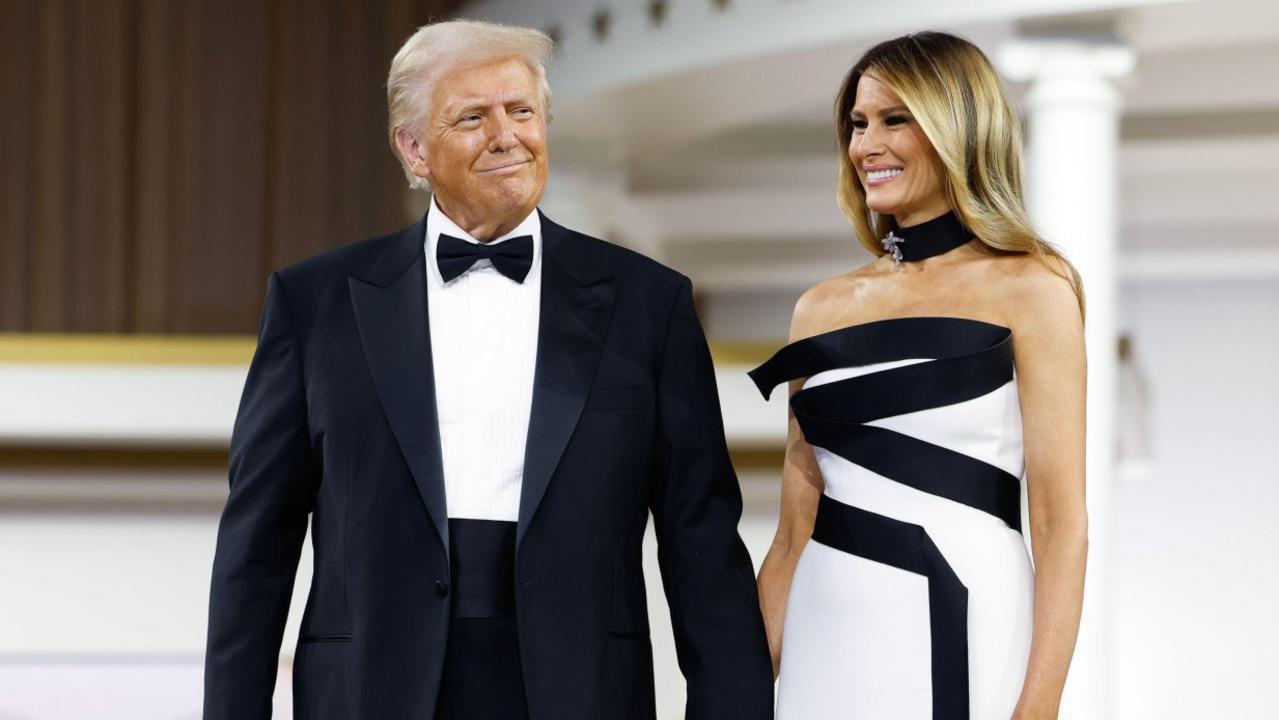Israel set to give all its people coronavirus vaccine
Israel has is the past two weeks vaccinated 12 per cent of its population — the highest vaccination rates in the world.

Israel has in the past two weeks vaccinated more than a million people against COVID-19 — some 12 per cent of its population — which is the highest vaccination rate in the world.
Prime Minister Benjamin Netanyahu and Health Minister Yuli Edelstein were in the Galilee town of Umm al Fahm at the weekend when Israel reached its one millionth vaccination on day 12 of the drive.
“Now we can say with confidence that Israel will be the first country in the world to achieve total vaccination. This is an incredible accomplishment. In just a few months we will finally be able to say hasta la vista to the virus and to get back to the ‘normal’ that we all miss so much,” Mr Edelstein said.
The schedule is tight. Israel aims to complete the first and second doses for at-risk people, including frontline workers, by next month. It aims to vaccinate the entire population by April. To put that in perspective, that’s about when Australia plans to start its vaccination campaign.
Initially, the government feared people might be hesitant about the vaccine, but that dissipated as the rollout began. In its first two weeks, the government reached its goal of 150,000 vaccinations a day, operating some centres 24 round the clock.
Three healthcare providers are working at the Arena, a conference centre opposite Jerusalem’s main football stadium, vaccinating hundreds of people each hour.
“No, I am not frightened, I am happy that I have this opportunity. I want my life back, I want to see my family and celebrate the Jewish holidays with them,” said Sima Bloom, an Orthodox Jewish woman, mother of five and grandmother of nine, as she took a number and sat to wait for her Sunday evening appointment.
Like everyone at the Arena, Ms Bloom was wearing a mask and was part of the first at-risk group being targeted — those aged 60 and over.
As the night wore on, the situation became more chaotic, with the lines outside growing longer. Younger people who were not on the list arrived, in case there were any leftover doses of the hard-to-store vaccine, and they could be vaccinated out of turn. A crowd formed at the exit, social distancing forgotten, as people shouted at organisers to be let in.
Nadav Eyal, one of the journalists covering the pandemic, said: “Israel began at maximum speed — and then accelerated.”
One of the reasons Israel has been able to act so fast is because of deals the government made with Pfizer and Moderna that have brought millions of doses into the country, with more on the way. While Israeli officials won't say either how many doses have been bought nor how much has been paid for them, the media reports the government paid as much $US30 a dose, twice that paid by the US and Europe.
Mr Edelstein said even if it turned out that Israel did pay over the odds, “it would be worth it if we could reopen the economy even one week earlier”.
Israel is small — about a third the size of Tasmania — with an advanced National Health Service that is used to administering public health measures such as flu vaccines. Its records are digitised, and it has an infrastructure capable of handling a complex rollout, including ensuring -70C storage for the vaccine doses.
Eyal says this was Israel’s selling point to the pharmaceutical companies. “Israel became the international pilot for a fast vaccination campaign,” he says.
The third factor is political. Israel faces its fourth election in two years on March 23 and Mr Netanyahu has been the subject of mounting criticism over his handling of the pandemic. More than 3300 Israelis have died of COVID-19 and infection numbers are still rising. The country has entered its third nationwide lockdown and the new coronavirus variant first seen in the UK has been identified here too.
Mr Netanyahu is hoping that the vaccine will resolve all these problems and that he will be able to take the credit. He received the country’s first vaccination live on TV. “We are breaking all the records. We have brought millions of vaccinations to Israel. We’re leading the world … the moment this reaches a critical mass of vaccinated people, we will be able to open commerce, stores, restaurants, everything,” he said.
Israel is a victim of its own success. It will finish it doses of Pfizer vaccine by the end of the month and has to wait for the next lot, due late in the month. It is now competing with larger countries who also need vaccine deliveries as Europe and the US experience a third wave of infections.
It is negotiating with the pharmaceutical companies for an extra urgent delivery as it counts down to the election.


